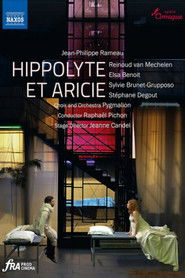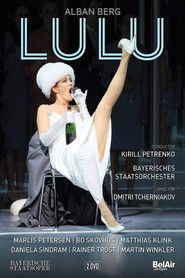detail profile elsa benoit

Info Pribadi
Peran Yang Di Mainkan Elsa Benoit
 On June 8 2024 Oscarwinning French actress Marion...
On June 8 2024 Oscarwinning French actress Marion...Honegger’s “Jeanne d’Arc au bûcher” with Alan Gilbert and Marion Cotillard 2024
On June 8, 2024, Oscar-winning French actress Marion Cotillard joined the Berlin Philharmonic Orchestra for a performance of Arthur Honegger’s oratorio Jeanne d'Arc au Bûcher (Joan of Arc at the Stake), conducted by Alan Gilbert, performed at the Berliner Philharmonie in Berlin, Germany and broadcast live on Digital Concert Hall, the online concert hall of the Berliner Philharmonie. In the oratorio, Joan of Arc looks back on her life, her visions, and her successes during a show trial in which she is sentenced to be burned at the stake.
 How to take the place of...
How to take the place of...L'Incoronazione di Poppea 2023
How to take the place of the empress of Rome? Poppaea, a courtesan and mistress of Emperor Nero, removes every obstacle that stands between her and the throne: she leaves her lover, Otho, the philosopher Seneca commits suicide, Empress Octavia is banished, and finally she achieves her goal, marrying Nero. Through Monteverdi's music, this triumph of immorality is elevated into a hymn to the power of desire. Monteverdi's last opera is also the first masterpiece of the genre, extraordinarily and enduringly modern. Here, it is filmed at the Opera Royal de Versailles, with a young and committed cast, guided through a mafia-baroque world by director Ted Huffman and the sensational Leonardo Garcia Alarcon!
 In October 1733 the audience at the...
In October 1733 the audience at the...Hippolyte et Aricie 2020
In October 1733, the audience at the Académie Royale de Musique witnessed the birth of a revolutionary work: Hippolyte et Aricie. With its inventiveness and musical richness, Rameau’s opera marks a break in the history of French music. A similarly revolutionary duo – Jeanne Candel and Raphaël Pichon – get to grips with this work for the Opéra Comique.
 Queen Semiramide is haunted by the...
Queen Semiramide is haunted by the...Semiramide - Bayerische Staatsoper 2017
Queen Semiramide is haunted by the ghosts of her past. Together with her lover Assur, she once murdered her husband King Nino; a deed which ever since has weighed heavily upon her. With her marriage to Arsace, she hopes her soul will at last find solace. Her love, however, is misplaced. Arsace not only loves another, he is also, as is later revealed, the son Semiramide and Nino believed to be dead. He is faced with a decision: should he avenge the death of his father – and thus become his mother's killer?
 Donizettis French masterpiece was in the...
Donizettis French masterpiece was in the...Donizetti - La Favorite 2015
Donizetti's French masterpiece was in the hands of Italian conductor Antonello Allemandi. This maestro, a bel canto specialist, captured the fire and intensity of the passions from the get-go, making the overture a superbly eloquent transition to a musical world based on beautiful lines and colors that elaborate distress and make it compellingly elegant. Allemandi demonstrated a full authority over the stage for the musically complex scenes, and in the arias and duets he demonstrated his confidence in the artistry of distraught singers by establishing ample tempos to support their soaring vocal lines while he concentrated on pulling every possible nuance from the pit players.
 At the Bayerische Staatsoper in Munich...
At the Bayerische Staatsoper in Munich...
